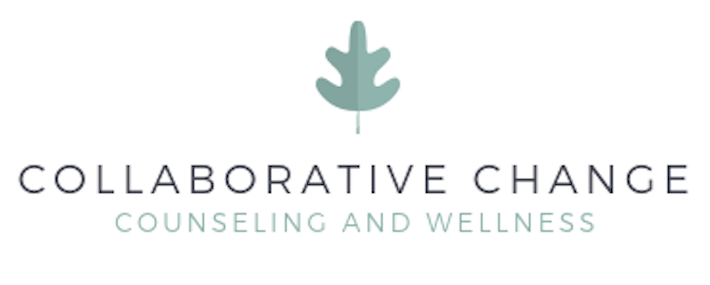A recent survey found that 75% of couples are happy in their relationships. However, these numbers are declining as outside stressors are becoming a big part of relationship disintegration..
Unfortunately, many couples are unaware of how unhealthy relationships form – not to mention if they’re even in one. Chances are, if you’re reading this, you may be struggling with these same questions.
Keep reading to learn when to start couples counseling. This article could help save your relationship!
When to Start Couples Counseling
Relationship patterns can be hard to change. When you do an inventory of your relationship, it can be easier to spot destructive behaviors. To start, you’ll have to look at the factors below:
- Longevity of the relationship
- Frequency of fights
- Outside stressors
- Sex life
- Destructive behavior
Difficulties in these factors may be early signs that you may need to get into couples counseling. Keep reading to learn more about these signs.
1. Complacent Behavior
Any relationship that has hit the five- to six-year mark might start having some rough patches. However, this is usually when complacency in the relationship may begin.
During this time, key behaviors may start to manifest because of complacency. For example, the amount of quality time may start to diminish. Quality time is very important in a healthy and loving relationship.
Quality time does not have to be expensive or revolve around sex. It is more about the time spent with your partner with meaningful interactions.
Overall, it’s best to seek couples therapy if there’s complacent behavior that leads to less initiative to spend quality time. This is especially true if no outside commitments are holding you back.
Another example of complacent behavior is not celebrating special events anymore. Anniversaries and birthdays are a chance for you and your partner to reconnect. If these special days are not being celebrated, it can be a cause for concern.
Thankfully, couples therapy can help revive the relationship.
2. Constant Disagreements
It’s normal for you and your partner to disagree on some aspects of life. However, the frequency of disagreements is important to note.
If you’re unsure if the frequency of the fights is normal, consider the Gottman theory. The Gottman theory states that a relationship needs a five-to-one ratio to be happy. For one bad interaction, there needs to be at least five positive ones.
If you notice this ratio is off, it might be time to seek a couple’s therapist.
3. New Outside Stressors
Outside stressors can put a huge toll on a relationship. Visit a couple’s counselor if you’ve recently had an increase in outside stressors.
These stressors can be related to health issues, job loss, or debt. Did you know that 54% of Americans believe that debt is a reasonable cause for divorce? Unfortunately, many are finding themselves in debt because of the cost of living.
This type of stressor can cause a lot of problems in a relationship. Also, if your relationship is struggling with finances, it may be lagging in other areas. Luckily, couples therapy can help your relationship maneuver through these hard conversations.
4. Low Sex Life
Sex is an integral part of a healthy relationship. An unhealthy relationship can manifest in low sex drives.
A sudden change in sex patterns may be an early sign of a failing relationship. This is especially true for partners who’ve had busy sex lives in the past.
Sometimes you may feel like you’re initiating but not getting your needs met. During this phase, some partners may start to suspect infidelity or cheating.
These internal allegations may cause even more insecurities in the relationship. So, it’s better to seek a therapist to discuss..
5. Destructive Behavior
Destructive behavior is a common sign that a relationship needs couples therapy. These destructive behaviors can appear normal at first. However, they may soon manifest into dangerous relationship patterns.
Some examples of these patterns are as follows:
- Yelling
- Manipulation
- Gaslighting
- Physical violence
- Blatant lying
- Cheating
These are only a few examples of some unhealthy relationship patterns. Some behaviors may not be as malevolent as the ones mentioned above. For example, some might manifest as hiding information or stonewalling.
Stonewalling is a manipulative tactic, used by the person in power, to withhold communication for the purpose of postponing a resolution.
Communication is number one, especially for co-habituating partners. Therefore, a change in communication can be categorized as destructive behavior.
You and your partner must discuss what your goals are for the day. If you have children, it’s important to discuss chores and other duties. Little to no communication in a day is an early sign that you need a couple’s counseling.
Therefore, you’ll want to note what’s normal for your relationship and what’s not. Seek help if any of the above behaviors are present in your relationship.
Factors to Consider When Choosing a Couple’s Counselor
You know the signs, now it’s time to take action. You must discuss this with your partner first. Ask them how they would feel about seeking therapy.
If the answer is no, consider seeking solo therapy in the meantime. If they’re willing to seek counseling, then you’ll want to choose a counselor that fits your needs.
Not all counselors use the same methods. You’ll want to interview your counselors to ensure they’re a good fit. Luckily, at Collaborative Chance, there are multiple counselors on hand. We also operate from a sex-positive stance and have multiple LGBTQ-friendly counselors.
Get Your Relationship Back on Track
Now that you know when to start couples counseling, you’ll have a better outcome. Relationships can be hard, but with the right couple’s therapy, the flame can reignite.
At Collaborative Change, we have an array of vetted counselors ready to help. We offer personalized counseling sessions so you can start to rebuild your relationship according to your needs. Call us today and get matched with a licensed couple’s counselor.


